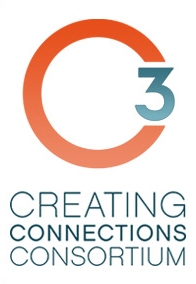Two Leading Universities Join C3’s Effort to Diversify Higher Education

MIDDLEBURY, Vt. – Two of the nation’s top research universities — the University of Michigan and the University of Chicago — have joined C3, a consortium aimed at promoting diversity and full participation in higher education.
Launched in 2012, C3 — Creating Connections Consortium — is funded by The Andrew W. Mellon Foundation. Membership to date includes Bates College, Connecticut College, Middlebury College, Williams College, University of California at Berkeley, Columbia University, and now University of Michigan and University of Chicago. The other 20 member colleges (besides the four already mentioned) of the Liberal Arts Diversity Officers Consortium (LADO) and the Center for Institutional and Social Change at Columbia Law School are also partners in the consortium.
“The addition of the University of Michigan and the University of Chicago to C3 enables us to better promote full engagement and inclusion regardless of identity or background,” said Susan Baldridge, provost at Middlebury. “All the C3 partner schools will be able to benefit from the broad experience and deep commitment to diversity of these two universities.
“Their addition as members also permits us to expand the reach of the C3 programs to students and faculty from a broader range of institutions,” added Baldridge.
The partnership is working to achieve its mission through two fellowship programs — one for undergraduates and another for post-doctoral candidates.
The programs are designed to address longstanding challenges related to diversity faced by liberal arts colleges and universities. Liberal arts colleges have often struggled to find ways to hire and retain faculty from underrepresented groups. At the same time research universities have faced a similar dilemma trying to recruit diverse graduate students from liberal arts colleges.
By working together, the two groups of institutions hope to strengthen each other’s efforts. Through C3, post-doctoral candidates from the universities teach as fellows at the liberal arts colleges while students from the liberal arts colleges serve as undergraduate summer research fellows at the universities.
Administrators at the University of Michigan and the University of Chicago expressed their enthusiasm about joining C3.
“For decades, the Rackham Graduate School at the University of Michigan has worked across the university and with other institutions to support academic progress and completion for students from historically underrepresented groups,” said Carol A. Fierke, the school’s dean. “We’re excited about joining C3 as it expands our ability to further connect with underrepresented students in new ways.”
“The University of Chicago is honored to join C3,” said Sian Beilock, vice provost for academic initiatives at the university. “This resource is one of an increasing number of options available to our graduate students. We are eager to create opportunities for our students and to help contribute to the national dialogue on diversity in graduate education and academia.”
According to Baldridge, the reach of the C3 programs continues to expand. During the last three summers, a total of 40 students from LADO schools (including 23 from Middlebury, Bates, Connecticut, and Williams) have served as undergraduate research fellows at Columbia and Berkeley. A total of 18 post-doctoral fellows have been recruited from these two universities to teach at Middlebury, Connecticut, and Williams. The next cohort of post-doctoral fellows will begin teaching at these colleges, as well as at Bates, starting in fall 2016. And C3’s timely second annual summit, “Practicing Communities: The Transformative Power of Race in the Academy,” was held on November 13-15 and attracted more than 250 participants.
More information about C3 is available at www.C3transformhighered.org.

